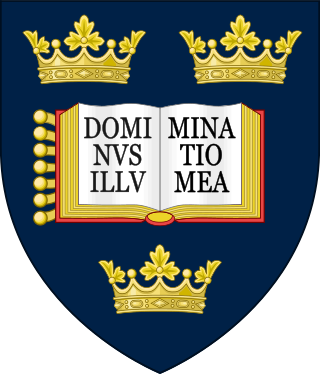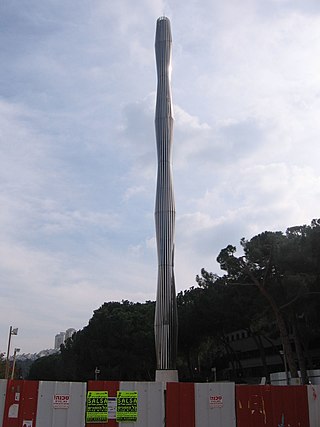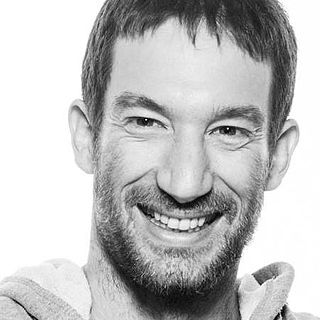Technology transfer (TT), also called transfer of technology (TOT), is the process of transferring (disseminating) technology from the person or organization that owns or holds it to another person or organization, in an attempt to transform inventions and scientific outcomes into new products and services that benefit society. Technology transfer is closely related to knowledge transfer.

Science and technology in Israel is one of the country's most developed sectors. Israel spent 4.3% of its gross domestic product (GDP) on civil research and development in 2015, the highest ratio in the world. In 2019, Israel was ranked the world's fifth most innovative country by the Bloomberg Innovation Index. It ranks thirteenth in the world for scientific output as measured by the number of scientific publications per million citizens. In 2014, Israel's share of scientific articles published worldwide (0.9%) was nine times higher than its share of the global population (0.1%).
Intellectual Ventures is an American private equity company that centers on the development and licensing of intellectual property. Intellectual Ventures is one of the top-five owners of U.S. patents, as of 2011. Its business model focuses on buying patents and aggregating those patents into a large patent portfolio and licensing these patents to third parties. The company has been described as the country's largest and most notorious patent trolling company, the ultimate patent troll, and the most hated company in tech.

Silicon Wadi is a region in Israel that serves as one of the global centres for advanced technology. It spans the Israeli coastal plain, and is cited as among the reasons why the country has become known as the world's "start-up nation". The highest concentrations of high-tech industry in the region can be found around Tel Aviv, including small clusters around the cities of Raʽanana, Petah Tikva, Herzliya, Netanya, Rehovot, and Ness Ziona. Additional clusters of high-tech industry can be found in Haifa and Caesarea. More recent high-tech establishments have been raised in cities such as Jerusalem and Beersheba, in towns such as Yokneam Illit, and in Airport City. Israel has the third highest number of startups by region and the highest rate of startups per capita in the world.
Jeremy Coller is a British businessman and philanthropist. He is the founder, chief investment officer and chairman of Coller Capital.

Dov Moran is an Israeli businessman, electrical engineer, inventor, investor, and writer. He is best known as the inventor of the USB memory stick, and one of the most prominent Israeli hi-tech leaders.

Oxford University Innovation Limited (OUI) is a British technology transfer and consultancy company created to manage the research and development (R&D) of university spin-offs. OUI is a wholly owned subsidiary of the University of Oxford, and is located on Botley Road, Oxford, England. OUI was previously known as Isis Innovation (1988–2016) and Oxford University Research and Development Ltd (1987–1988).
University spin-offs are companies that transform technological inventions developed from university research that are likely to remain unexploited otherwise. They are a subcategory of research spin-offs. Prominent examples of university spin-offs are Genentech, Crucell, Lycos and Plastic Logic. In most countries, universities can claim the intellectual property (IP) rights on technologies developed in their laboratories. In the United States, the Bayh–Dole Act permits universities to pursue ownership of inventions made by researchers at their institutions using funding from the federal government, where previously federal research funding contracts and grants obligated inventors to assign the resulting IP to the government. This IP typically draws on patents or, in exceptional cases, copyrights. Therefore, the process of establishing the spin-off as a new corporation involves transferring the IP to the new corporation or giving the latter a license on this IP. Most research universities now have Technology Licensing Offices (TLOs) to facilitate and pursue such opportunities.

Orna Berry, is an Israeli computer scientist, high-tech entrepreneur, and senior executive in the Israeli science and technology industries. In 1996, Berry became the first woman to serve as chief scientist and head of the industrial R&D operation of the Israeli Ministry of Industry, Trade and Labour. She was awarded the "Yekirat Hanegev" award from Ben-Gurion University of the Negev in 2012.

T3 Technion Technology Transfer is the technology transfer unit of the Technion – Israel Institute of Technology in Israel. The unit operates under the auspices of the Technion Research & Development Foundation.

BioLineRx Ltd., or BioLine, is a publicly traded drug development company. Headquartered in Israel, its shares are traded on the NASDAQ Capital Market and on the Tel Aviv Stock Exchange.
Infinity Group is a private equity fund backed by China Development Bank and Clal Industries. The head of Infinity Group is Amir Gal-Or. Infinity Group manages RMB 10 billion and 100 portfolio companies, through 17 local RMB funds throughout China.
Science and technology in Kazakhstan – government policies to develop science, technology and innovation in Kazakhstan.
University technology transfer offices (TTOs), or technology licensing offices (TLOs), are responsible for technology transfer and other aspects of the commercialization of research that takes place in a university. TTOs engage in a variety of commercial activities that are meant to facilitate the process of bringing research developments to market, often acting as a channel between academia and industry. Most major research universities have established TTOs in the past decades in an effort to increase the impact of university research and provide opportunities for financial gain. While TTOs are commonplace, many studies have questioned their financial benefit to the university.

Karin Mayer Rubinstein is the CEO and president of Israel Advanced Technology Industries (IATI), the Israeli umbrella organization for the high-tech and life sciences industries.

Hagit Messer Yaron is an Israeli electrical engineer and businesswoman. She is a professor of electrical engineering. She is the Kranzberg Chair Professor in Signal Processing at Tel Aviv University. She was the President of Open University of Israel from 2008 to 2013. Messer Yaron is the first woman in Israel to be appointed as a full professor of electrical engineering.

Nechemia ("Chemi") Jacob Peres Hebrew: חמי פרס is a venture capital and high-tech entrepreneur. He is co-founder and managing general partner of Pitango Venture Capital.
TAU Ventures is an Israeli venture capital firm investing in early state startups in Israel. It was founded in 2018 by Tel Aviv University and Nimrod Cohen, and is headquartered in Tel Aviv.

Eden Shochat is an Israeli businessman and venture capitalist. He is the co-founder of Aleph, an early-stage venture capital fund, with Michael Eisenberg.
BIOTECanada, previously the Industrial Biotechnology Association of Canada, is a Canadian biotechnology industry association based in Ottawa, Ontario. It is an industry-funded membership organization composed of over 250 national and international pharmaceutical and gene therapy companies, medical device manufacturers, agricultural science businesses, law firms, academic institutions, research and development networks, advertising agencies, insurance companies and financial services firms.











